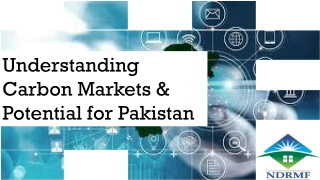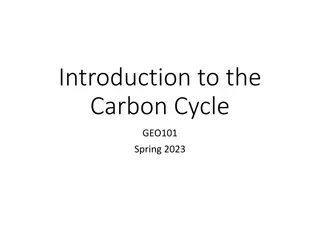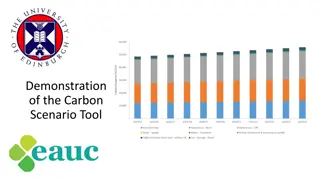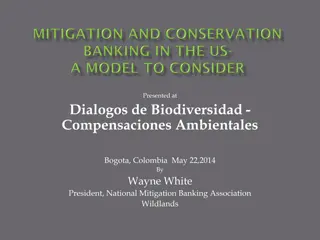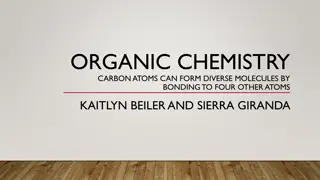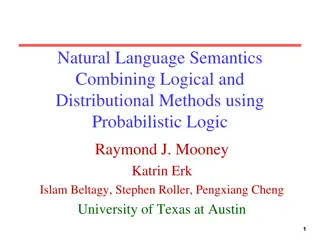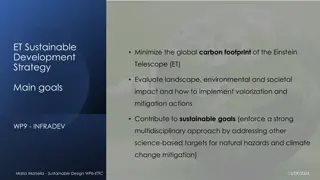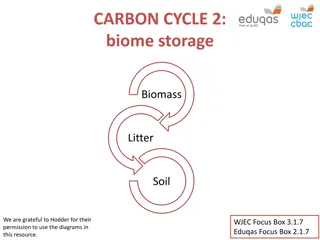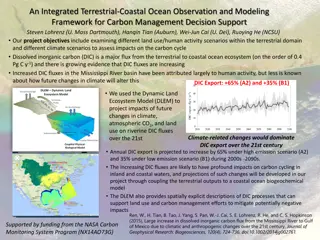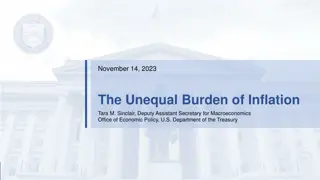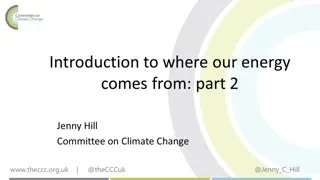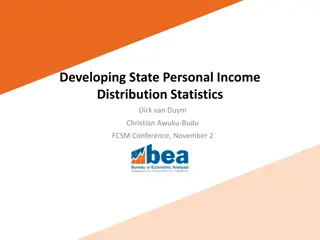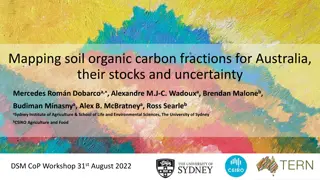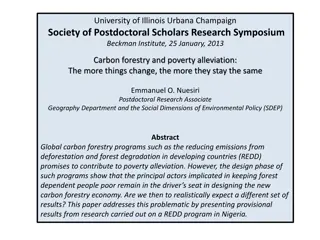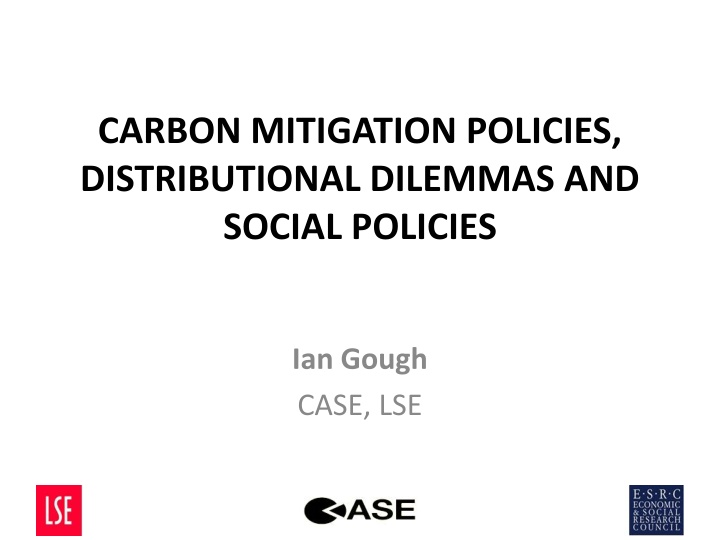
Carbon Mitigation Policies and Distributional Dilemmas
This paper delves into the distributive impacts of contemporary carbon mitigation policies, highlighting the triple injustice concept and proposing social programs to address these inequalities. It discusses the shift from production to consumption accounting frameworks and argues for the ethical and political merits of the consumption accounting perspective in tackling greenhouse gas emissions.
Download Presentation

Please find below an Image/Link to download the presentation.
The content on the website is provided AS IS for your information and personal use only. It may not be sold, licensed, or shared on other websites without obtaining consent from the author. If you encounter any issues during the download, it is possible that the publisher has removed the file from their server.
You are allowed to download the files provided on this website for personal or commercial use, subject to the condition that they are used lawfully. All files are the property of their respective owners.
The content on the website is provided AS IS for your information and personal use only. It may not be sold, licensed, or shared on other websites without obtaining consent from the author.
E N D
Presentation Transcript
CARBON MITIGATION POLICIES, DISTRIBUTIONAL DILEMMAS AND SOCIAL POLICIES Ian Gough CASE, LSE
Goals of paper Contemporary policies to reduce emissions of greenhouse gases will have distributive consequences Thus implications for the scope and remit of social policy . This paper studies current carbon mitigation policies and their distributive impacts. It considers a range of current and proposed social programmes to ameliorate these impacts, before proposing alternatives.
The triple injustice Developed first to explain global environmental injustice, but can be applied within countries (Pye at al): households situated in the upper part of the income distribution contribute more to CO2 emissions in absolute terms than lower income households; poor households suffer most from environmental degradation; common environmental policy measures tend to have regressive effects, burdening lower income households more
Goals My research is on climate change and carbon mitigation policies (CMPs). Ignore the second of Pye s three aspect - the direct impacts of climate change within the UK, such as flood risks, drought risks and heat waves, and their unequal distribution Thus: Climate mitigation policies -> distributional dilemmas -> countervailing social policies
From PAP to CAP This argument is pursued in two parts 1. a production accounting framework (PAP) the current Kyoto policy framework 2. a consumption accounting framework (CAP): study all GHGs emitted by UK consumers, whether direct or embodied in goods and services It makes a big difference: UK consumes 17%-36% more CO2 emissions than it produces China consumes at least 18% less than it produces
Growing case for CAP 1. Ethical: responsibilities for GHGs should rest with consumers not producers 2. Political: moving to CAP would ease the emissions problems facing large exporters and thus the potential conflict between climate change and socio-economic development, and the obstacles to global agreement on GHG emissions
Social policy implications of CAP To target consumption-based emissions in the West requires more radical policies to modify preferences and behaviour, and to constrain total consumption demand. Speculate on ways to combine these goals with social equity. Conclude this will require novel forms of policy integration: new proactive, investment-focussed eco-social policies Climate mitigation policies -> distributional dilemmas -> countervailing social policies Eco-social policies
1. PAP: current CMPs in the UK 3 main goals: explicit pricing of emissions promoting clean energy improving energy efficiency my main focus. Main programmes here: A few direct government programmes Majority oblige energy companies to promote energy efficiency with some targeting of lower income groups Total spending 0.24% of GDP in 2010-11 (less than cost of Winter Fuel Payments)
PAP policies: distributional consequences In a word regressive, especially when financed by bills paid by domestic energy consumers Offset by energy cost savings but these will mainly accrue to higher income households Hills Report provides much evidence Eg. Green Deal with modest Energy Company Obligation (ECO) will likely increase fuel poverty
PAP: ameliorative social policies Hills three alternatives 1. Better compensation Can do better than WFPs but not much due to heterogenous dwellings and households 2. Variable energy prices Eg. new Warm Home Discount: challenging Why not rising block tariffs? 3. Energy efficiency policies: the only secure way forward which can combine sustainability and equity goals. But how?
Green Deal or Green New Deal? The government s Green Deal is ambitious, but will shift costs still further on to private sector. Much criticised by Committee on Climate Change, Hills Report etc Will require direct tax-financed subsidy and more regulation to avoid social inequity: Power on German example Will require justification using an alternative political economy, emphasising investment leverage (Stern), Green New Deal (UNEP, ILO etc)
2. From PAP to CAP: our study CASEPaper 152 Links together data from two datasets: the Stockholm Environment Institute s (SEI s) Resources and Energy Analysis Programme (REAP) which calculates UK carbon emissions at a per capita level, and the UK 2006 Expenditure and Food Survey. Reveals scale of total embodied emissions Shows direct household emissions only one fifth of total
Composition of total household emissions Other 0% Public Services 12% Direct emissions 20% Domestic Energy and Housing 26% Transport 25% Food 14% Indirect emissions 80% Private Services 11% Consumables 12%
Distribution of CAP emissions by income, and emissions per of income:
CAP: distributional implications So the usual picture; but regressivity varies: less so for consumer goods and services and transport Ratios of emissions of top to bottom decile: Energy, food: 1.8:1 Consumer goods and services: 3.6-3.8:1 Transport (incl foreign holidays): 4.5:1 Thus moving from PAP to CAP reduces, but does not remove, conflict between sustainability and equity.
Policies to reduce CAP emissions Price based: Broad-based carbon taxes: now waning and usurped by Cap and trade: the EU Emissions Trading System and others This will be less regressive than current policies Directly influencing consumer behaviour: Providing information Nudging Citizen engagement Regulation Why retreat to nudge, where other influences may shape choices? (Taylor-Gooby)
3 policies for equitable carbon reduction 1. Taxing consumption, eg. Frank. Inequitable unless selective taxes on luxuries 2. Personal carbon allowances and trading Directly progressive (though still some low income losers) Direct impact on consumer behaviour likely But would require carbon labelling of thousands of goods (and services?); Tesco experience suggests unlikely without regulation
3 policies for equitable carbon reduction (cont) 3. Reduced working hours (Schor) Likely scale effect on emissions, but also composition effect Incremental by taking out productivity increases in leisure : Change in annual hours of work 1980-2010: US -33 hours, Germany -300 hours Some European examples Belgian Time Credit Scheme But would require ancillary traditional social programmes to avoid low pay and time inequality
Summary of policies Climate mitigation target 1.Current policy framework PAP, and within this direct household carbon emissions Pricing carbon 2.Enhanced policy framework CAP: All embodied consumption emissions Develop low carbon consumer preferences Restrain consumer demand Modify consumer preferences Climate mitigation goals Policies to combine with social equity Promote clean energy Improve energy efficiency Improved compensation Social energy tariffs Thermal efficiency: Green Deal Green New Deal Tax consumption Ration carbon Reduce working time
Conclusions: Reconciling equity and sustainability (re climate change) In the household sector, radical energy saving policies only secure solution, but Will require more subsidy and regulation Will entail different economic model (Green New Deal) and a switch in arguments for public spending from compensation to eco-social investment An ethical and political case for monitoring and targeting the total consumption-based emissions of rich countries like the UK These would challenge consumer sovereignty and economic growth Again a move from compensatory social policies to integrated eco-social programmes.

